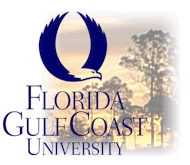
![]() Session 13/DL
Colloquium/Spring 2006
Session 13/DL
Colloquium/Spring 2006
April 10 - 16
In 1958, the great social historian Hannah Ardent wrote:
"Education is the point at which we decide if we love this world enough to assume responsibility for it and by the same token save it from ruin which except for renewal, except for coming of the new and young, would be intolerable. And education, too, is where we decide whether we love our children enough not to expel them from our world and leave them to their own devices, not to strike from their hands the chance of understanding something new, something unforseen by us, but to prepare them in advance for the task of renewing a common world. I believe in the power of environmental education to help us both to love the world and assume responsibility for it. I believe in the power of environmental education not to leave our children to their own devices, but rather to equip them with the "chance to undertake something new, something unforseen by us."
![]() Paper
5, "Education and Sustainability"
Paper
5, "Education and Sustainability"
1) In "Experience and Education" (1938), John Dewey writes, "some experiences are mis-educative" (p. 25). He also speaks of experience being "non-educative" (p.47) and goes on to say on the same page, "Indeed he is lucky who does not find that in order to make progress, in order to go ahead intellectually, he does not have to unlearn much of what he learned in school."
David Orr in his essay "Ecological Literacy" claims "… all education is environmental education. By what is included or excluded, emphasized or ignored, students learn that they are a part of or apart from the natural world. Through all education we inculcate the ideas of careful stewardship or carelessness."
Since everyone experiences an environmental education, what indicators or characteristics would you suggest differentiate an educative from a mis-educative environmental education? In other words what, in your opinion, characterizes effective environmental education? (one page)
2) In the essay, "The Liberal Arts, the Campus and the Biosphere…" David Orr writes "A genuinely liberal education will produce whole persons with intellectual breadth, able to think at right angles to their major field; practical persons able to act competently, and persons of deep commitment, willing to roll up their sleeves and join the struggle to build a humane and sustainable world. They will not be merely well-read. Rather, they will be ecologically literate citizens able to distinguish health from its opposite and to live accordingly. Above all, they will make themselves relevant to the crisis of our age, which in its various manifestations is about care, nurturing, and enhancement of life. And life is the only defensible foundation for a liberal education."
What sort of environmental education or education for sustainability do you think is appropriate in higher education? (one page)
3) Thinking of our own university and your course of study, what suggestions would you make in order to meet the learning outcome of ecological literacy? (one page)
Paper 5 "Education and Sustainability" is due April 24th.
![]() To
help you in writing this final paper, particularly part 3 (see above), please
read the following paper by clicking on the globe. This paper was written by
the former Colloquium coordinator, a Colloquium professor, and myself and presented
at the NAAEE (North American Association of Environmental Education) national
conference last Fall. Read about your own environmental education in this University
Colloquium.
To
help you in writing this final paper, particularly part 3 (see above), please
read the following paper by clicking on the globe. This paper was written by
the former Colloquium coordinator, a Colloquium professor, and myself and presented
at the NAAEE (North American Association of Environmental Education) national
conference last Fall. Read about your own environmental education in this University
Colloquium.
"We say that our hope, represented in this Colloquium, is that students, upon graduation, will be able to claim an environmental education, giving them and creation a chance to carry on in a sustainable manner."
-Dr. Peter Blaze Corcoran, University Colloquium Coordinator (1997-Fall 2001)
![]() Environmental
Education Websites
Environmental
Education Websites
Take a look at these to see what is happening in this educational field.
A website for educators to enhance environmental and global education across the curriculum at all grade levels.
http://www.naaee.org/index.htm
 Twelve
Principles of Environmental Education
Twelve
Principles of Environmental Education
The Tbilisi Declaration UNESCO/UNEP identified these 12 Principles of what environmental education should be.
Once you have gathered the information, write your paper. Submit your paper as an MSWord e-mail attachment by April 24th.
COURSE ASSESSMENT: Please go to http://www.fgcu.edu/planning/StudentAssessment/StudentInfo/Index.asp to complete the online assessment of this course. It should take only a few minutes to complete. Thanks.
![]() Final
Project/Journal
Final
Project/Journal
Consider how you would like to hand in your journal, and final project.
You can either drop them off at Room 245 in the Whitaker Building, 2nd floor, College of Arts and Sciences, by April 24th . She is the secretary for the Colloquium -or- mail them to me:
1736 Maple Avenue
Fort Myers, Florida 33901
I will need to receive them the week of April 18th - April 25th. The deadline to receive all materials is Monday, April 25th.
Home |Introduction |Writing Papers |Readings |Schedule |Assignments |Journals |Final Project |Field Trips | Rubrics |Links
|
©
FGCU 2004. This is Website
designed by |
|
Florida Gulf Coast University 10501 FGCU Blvd. South Fort Myers, Florida 33965 |